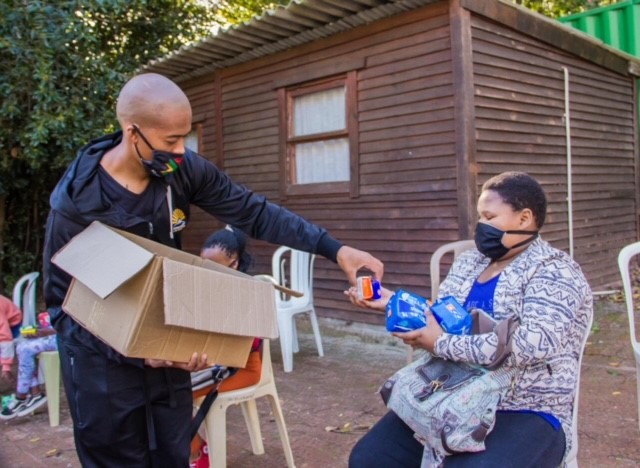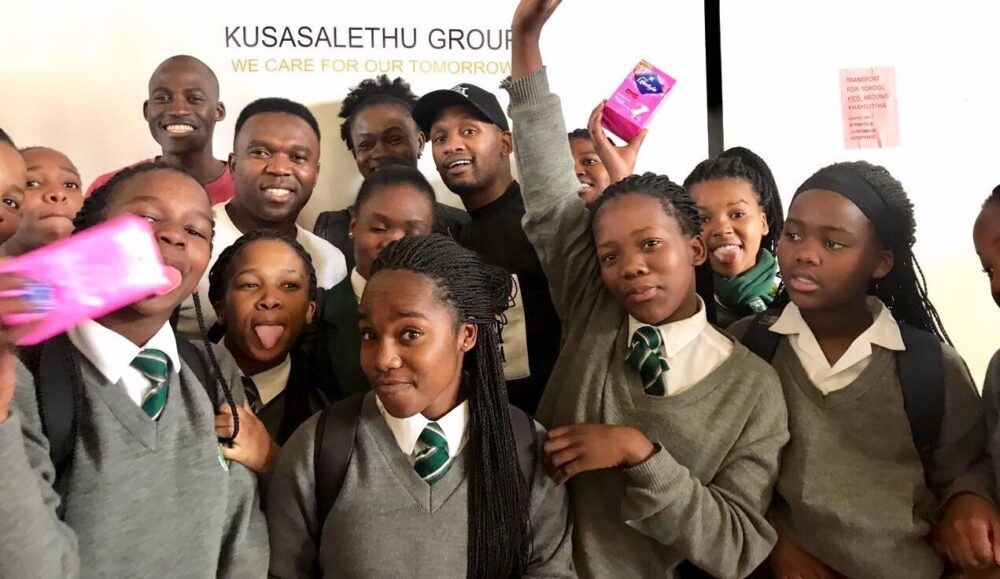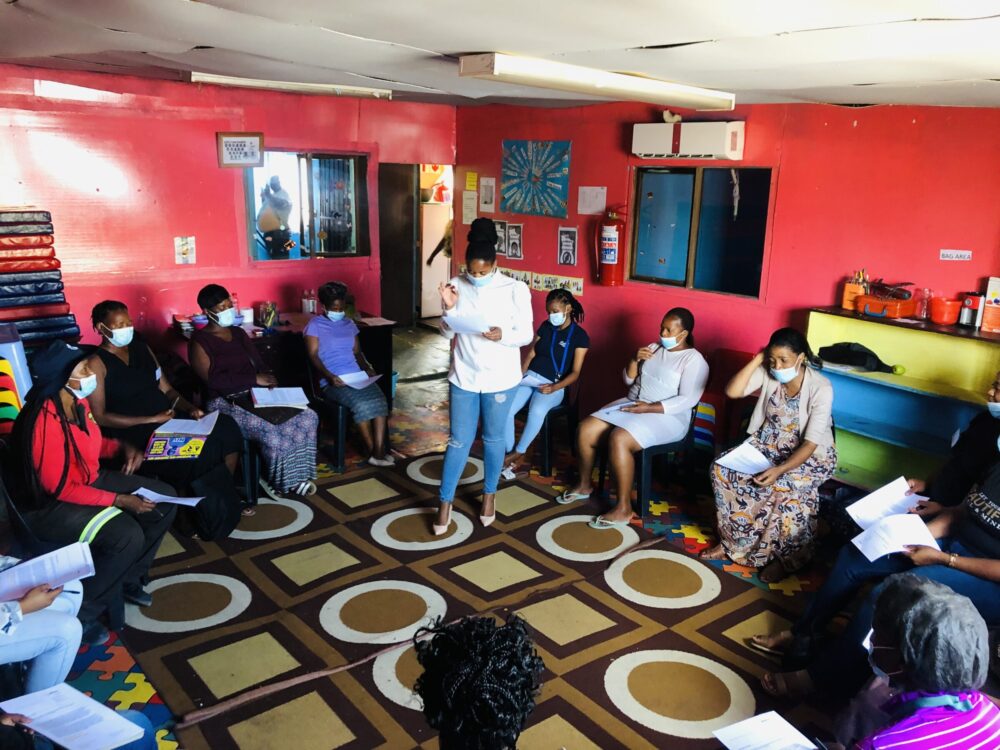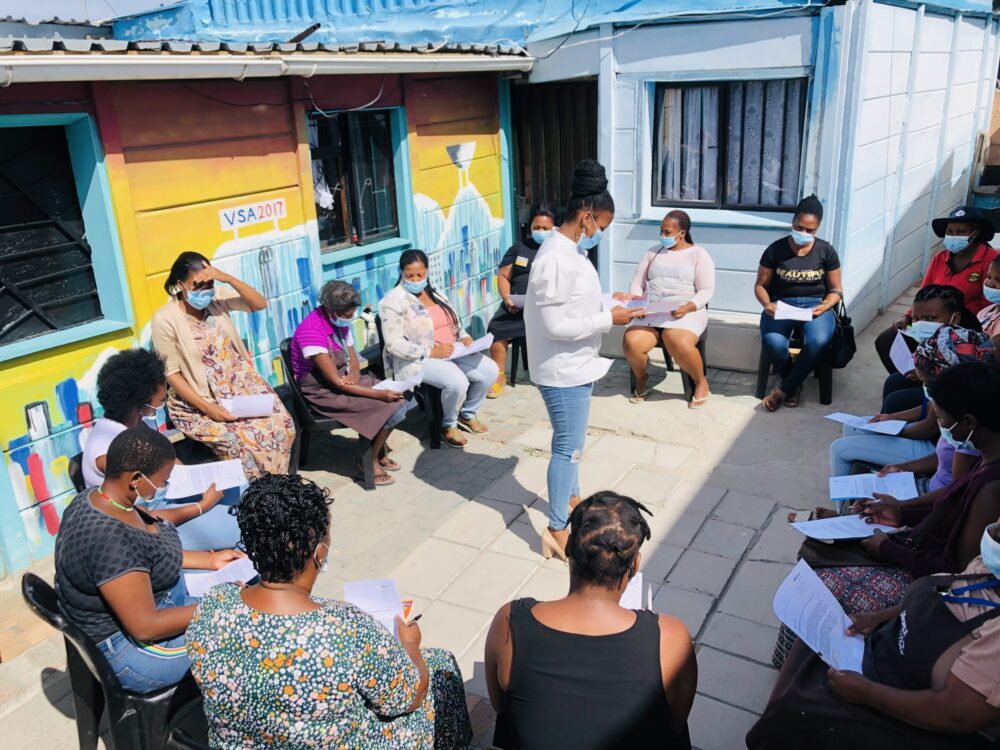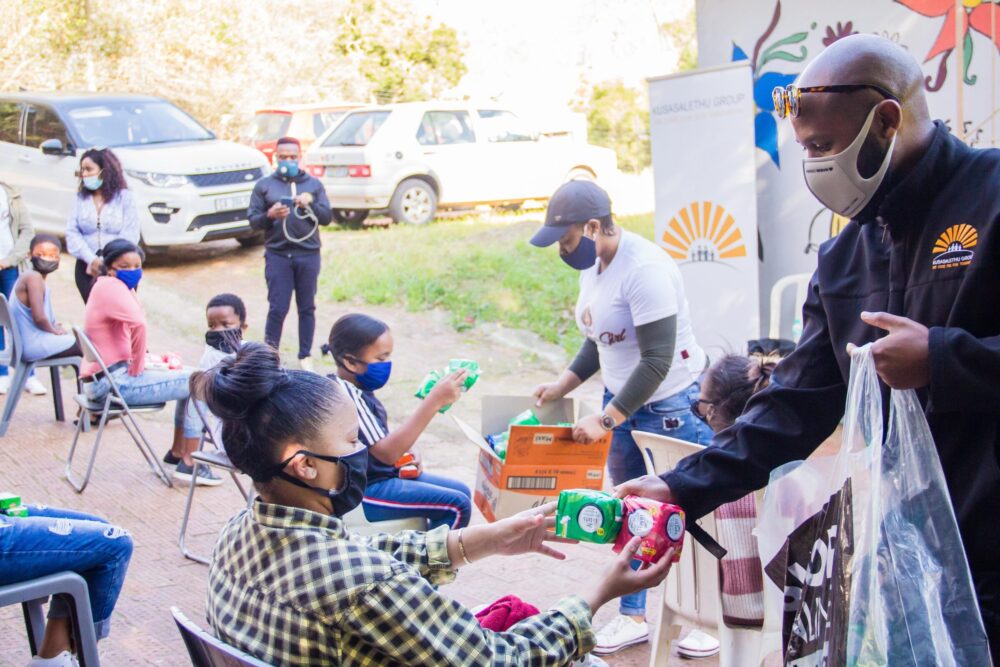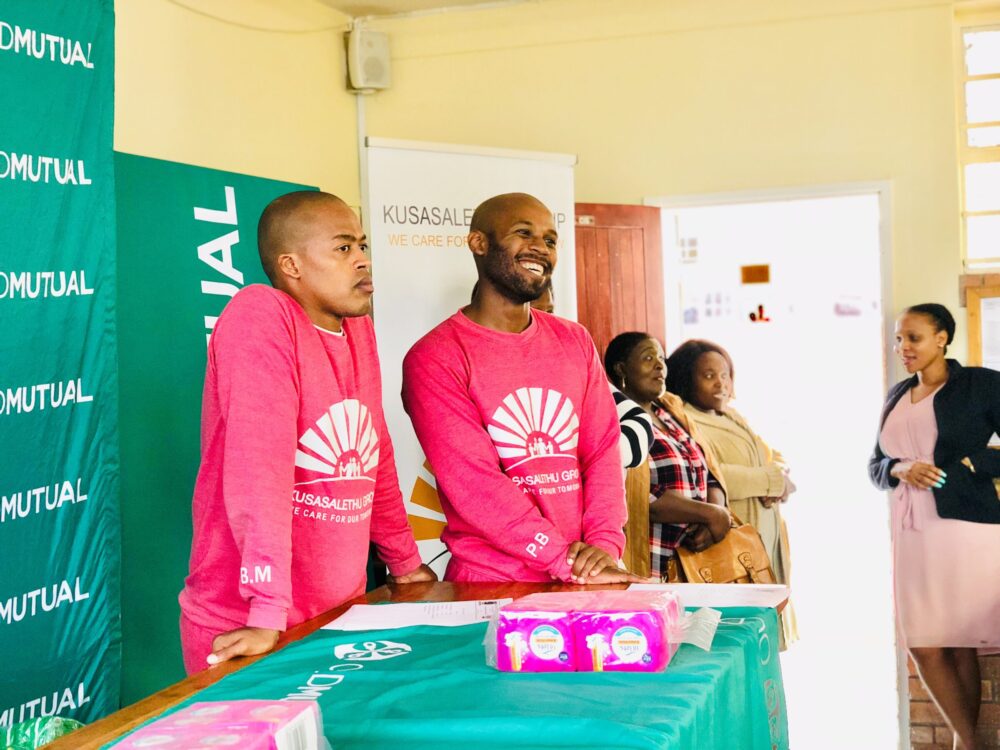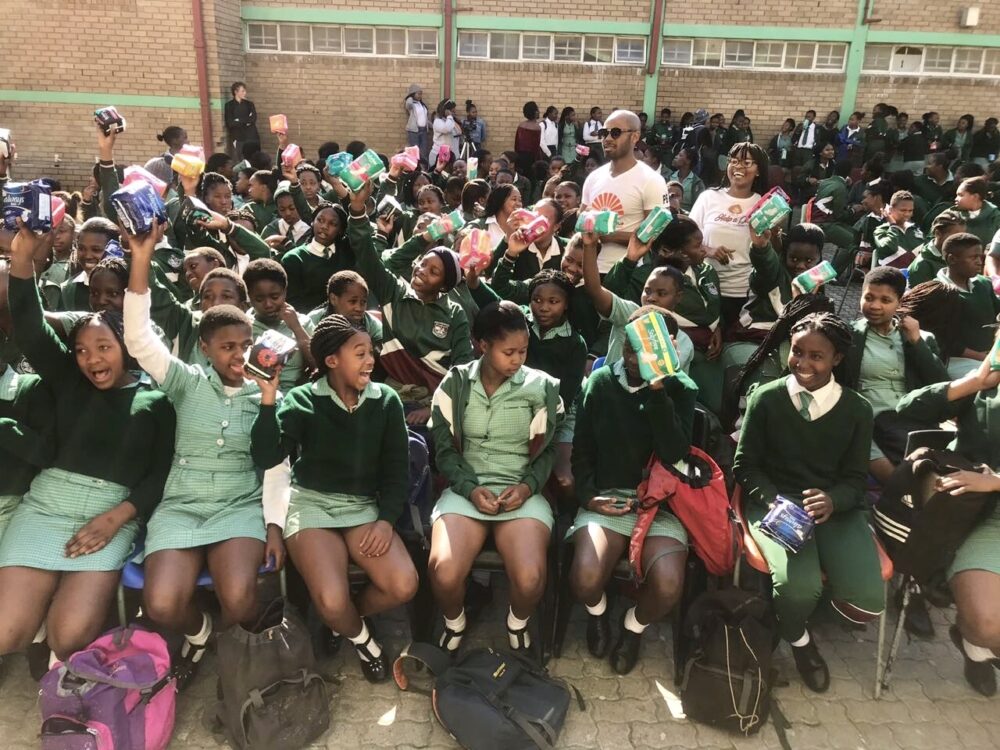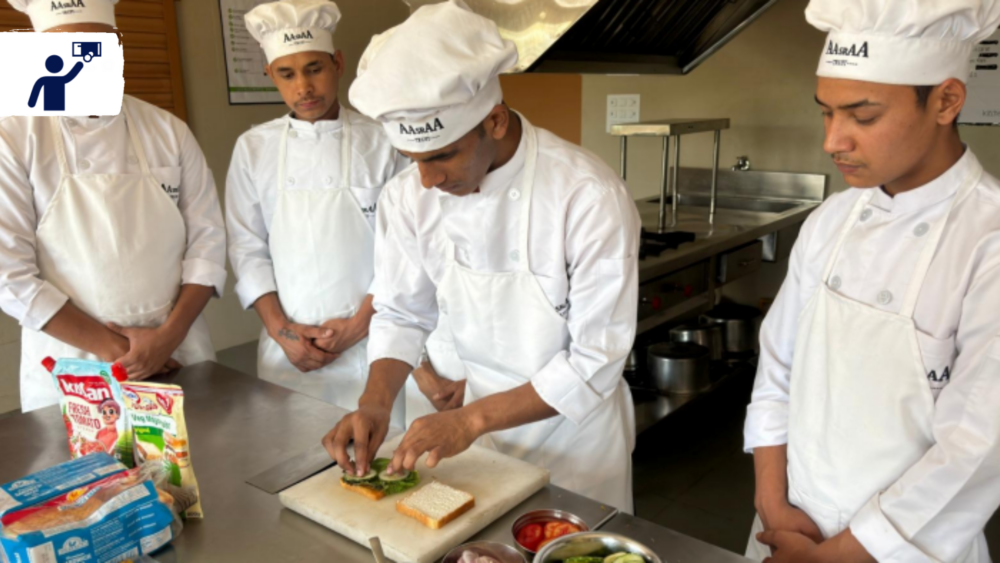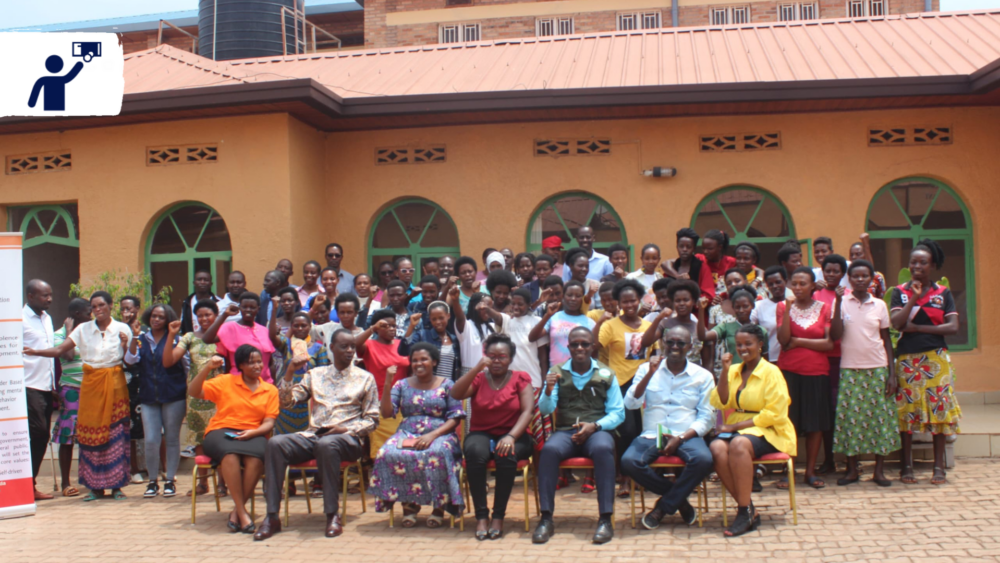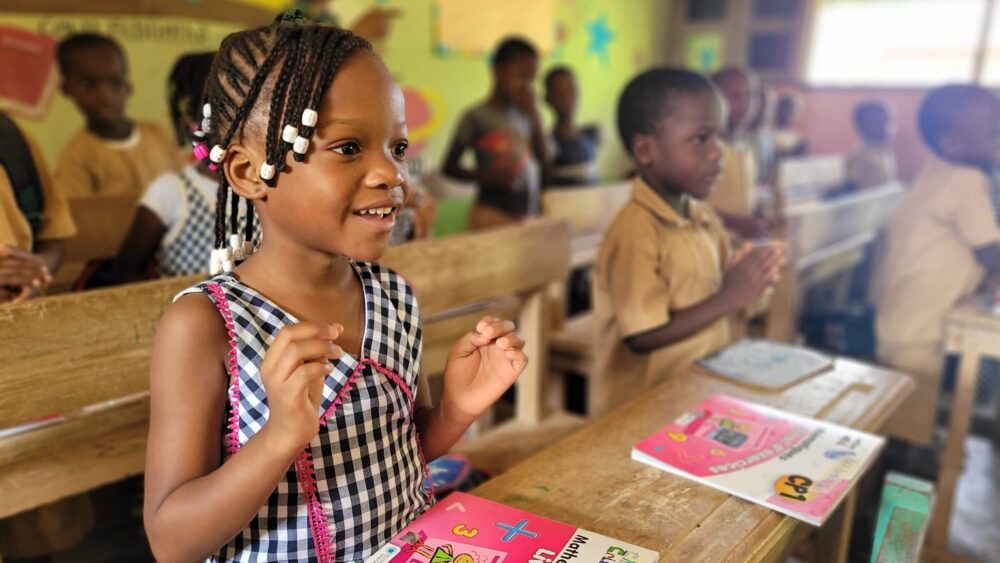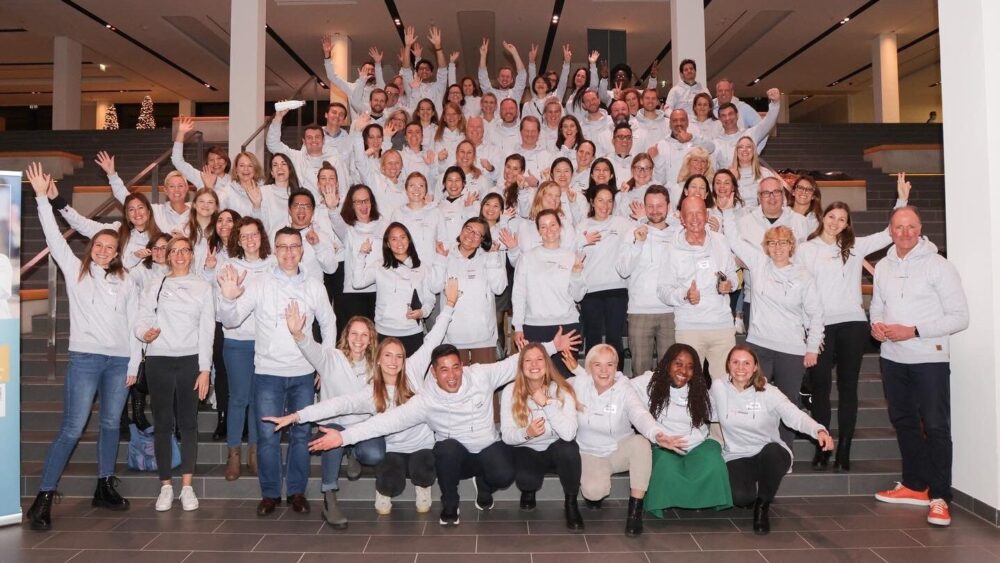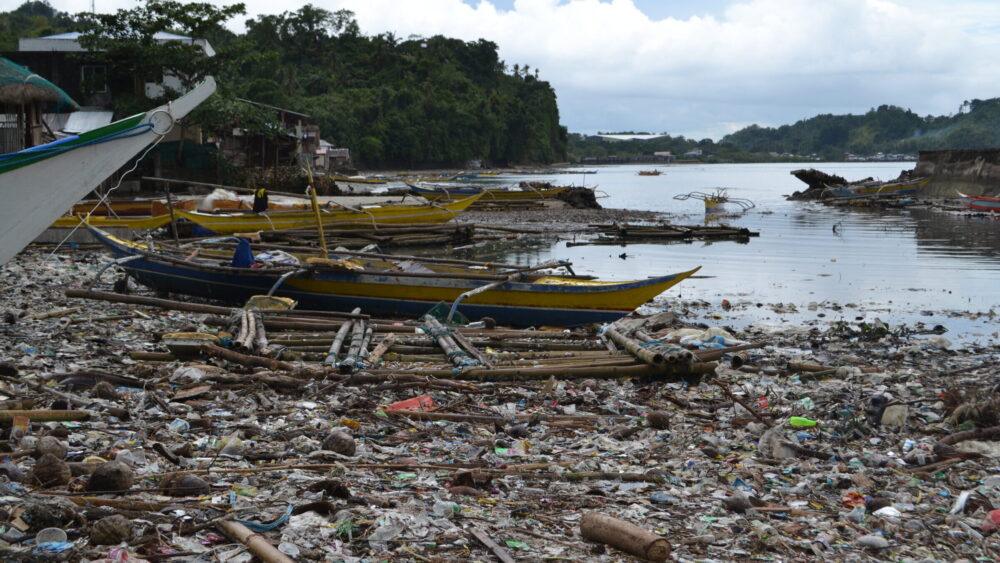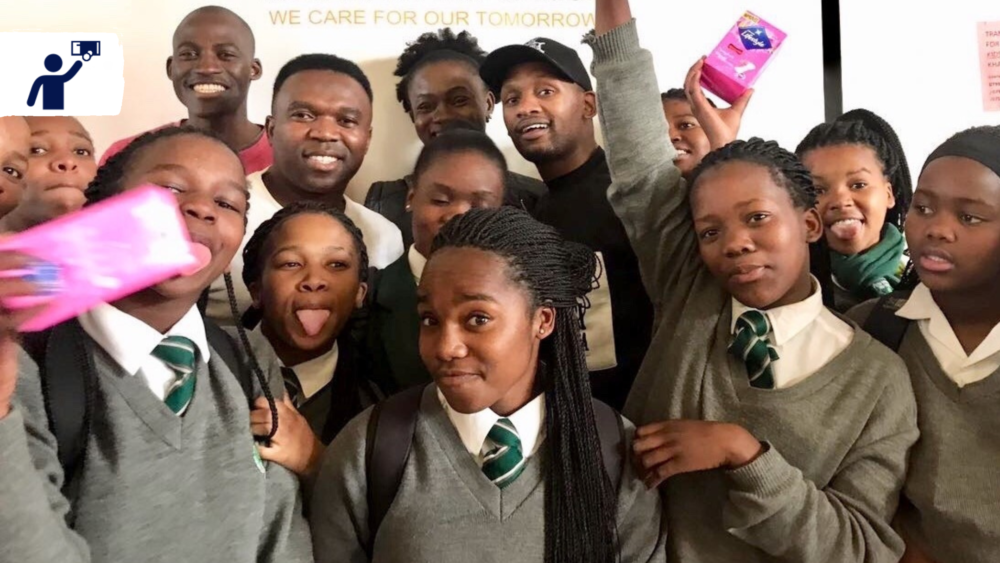
Sustainable sanitary pads, Cape Town
The project aimed to improve access to feminine hygiene products for more women and girls. The production and sale of the sanitary pads also created jobs for previously unemployed women from the township.
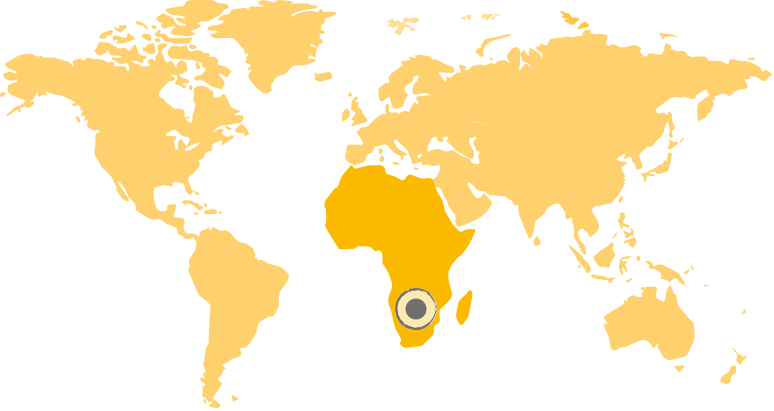
Project Background
Period poverty describes the disadvantages induced by menstruation for women and girls without access to hygienic and affordable period products. According to the UN, this leads to approximately 63 million students worldwide missing part of their schooling. In South Africa, the number is as high as 1/3 of students experiencing a significant educational disadvantage during their period. To find a solution to this serious problem, German and South African students joined forces in 2018 and launched the “WEpads” project to produce and distribute affordable and sustainable sanitary pads. What makes the project special is that it is produced by women for women and girls, providing both a solution to period poverty and an income-generating measure in production and distribution for women without an educational background.
Our Impact
With the support of help alliance, girls and women received business training that taught them how to successfully market the sanitary pads they produced within their communities. The second part of the training focused specifically on the saleswomen and covered both the product and the issue of period poverty. The goal of this training module was to thoroughly prepare the saleswomen for distributing the pads in the townships. In total, 40 women entrepreneurs were trained, and a pad production machine was provided for manufacturing.
In addition, help alliance supported menstrual and cycle education in schools and youth centers in Khayelitsha. These initiatives aimed to break the taboo around menstruation and, in particular, to raise awareness about menstrual hygiene.
THE FUNDING FOR THIS PROJECT HAS BEEN COMPLETED
However, we continue to support many other projects in the region.

